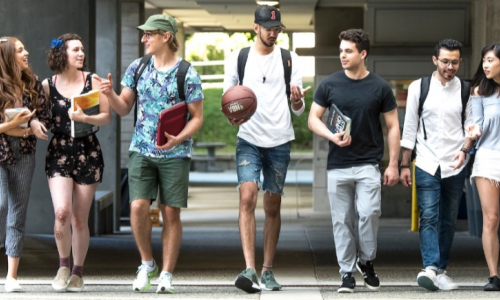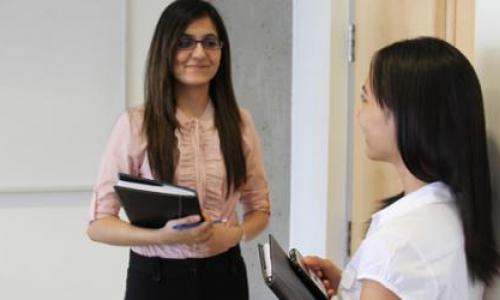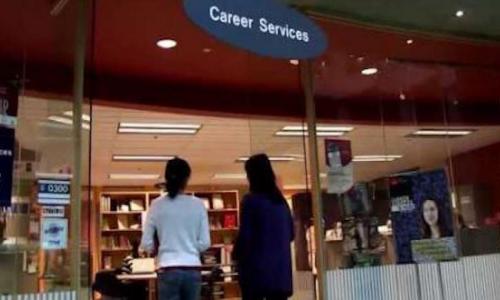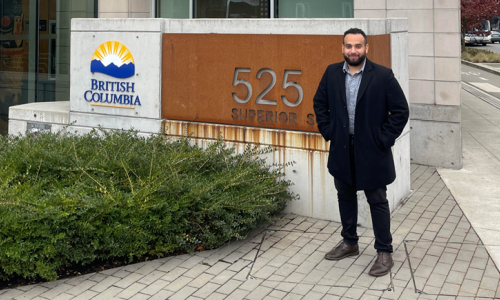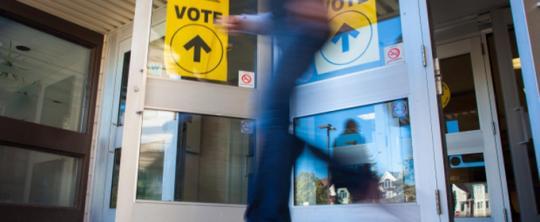
Perhaps you’re aware of the streams of advertisements on billboards, television, internet sites, and radio stations, or you’ve seen and heard people talking about it. Maybe you’ve either tried to engage in it or avoid the topic completely; however with less than two weeks to go, it’s difficult to get around the subject of politics and the election. At this point you might be wondering, this is a blog about careers, right? So why on earth is there a discussion on the federal election and politics on here? Well I’m here to give you some of the reasons why politics matter to you, and why you should actively engage in the political system, least of which is voting in an election.
According to Elections Canada, in the last election (2011), only 61.1% of all eligible voters voted, which was slightly higher than the all-time low turnout in 2008 at 58.8%. The turnout rate for those ages 18-24 was 38.8% compared to those ages 65-74, their turnout rate was a whopping 75.1%. [1] What this tells us is that we’re not participating in the decision making process. We aren’t selecting a government that will focus their attention on our needs.
As students transition from post-secondary institutions and ready their skills and assets to transition into the work force, the reality of the world starts to sink in; there are going to be those who can’t find meaningful employment pertaining to their field of study. Some students are forced to relocate to places away from home because they can’t afford to live in their home cities. Others find out it will take them longer than they expected to pay back their student loans, save up for that dream home and maybe start a family with their partners.
It is important to recognize that many of these problems can be attributed directly or indirect to various government policies and agendas. During election time, citizens have the choice to pick the candidate they perceive to be the best to represent their interests (these issues!) in our legislature. The leader of the party that received the most votes then has the ability to try to form government and fulfil the promises they made to the people. Thus, in order for the government to truly represent the people of Canada, they need to have the people’s support and approval.
In this election, one of the topics at the forefront has been the state of our economy and the labour market in the face of falling resource prices and shrinking manufacture industries. All the major parties have released platforms that touted themselves as being the best choice to jumpstart the economy, create jobs, and protect the incomes of average Canadians. Many campaign promises have been made by politicians to try to win support for their parties. It is these election platforms and promises that will ultimately influence government policies and agenda if they can win a majority in parliament. It is up to us voters to keep politicians accountable to these promises. (For more information you can visit the CBC with a compilation of electoral promises.)
Hence, it is worth spending our time to study and examine these policies and how they might affect our career opportunities and outcomes. For example, those who are interested in starting their own business might favour a freeze on business & corporate taxes, as well as minimizing costs through tax credits and incentives that would benefit small businesses. Those who wanted to work with natural resources extraction industries may want to pay attention to the controversies surrounding pipelines, and related environmental regulations. The recent free trade agreement between Canada and several Asia-Pacific countries would also have major implications on a lot of industries in Canada, such as the agricultural and auto sectors.[2]
For those studying in health sciences, they may want to focus on funding, universal drug policy for Canadians, and advocacy for better medical research, especially given the number of Canadians projected to need health care services and programs in the near future. Education students may look at funding to provinces to sustain schools, increase daycare spaces, and reduce the costs of school supplies to students and teachers. Science students might want to get involved in the discussions on innovations, research and technology relating to many fields such as health care, green energy, aerospace industries, fisheries, etc. Reducing crime and reforming the criminal justice system would be of interest to students in the criminology field.
Through some my examples above, I have demonstrated how the subjects we learned in school do actually have real life consequences through the way our government operates. By investing, promoting, and favouring certain industries, occupational fields and sectors of the economy, the government is indirectly supporting job creation and encouraging growth. Therefore, it is vital that we pay attention and make informed decisions when electing our representatives to do the job that we, the citizens and taxpayers, send them to do. It is also the time we “vote with our wallet” in regards to which parties we trust, or place our confidence in changing our future for the better. To not vote is to give that choice away to other people, and allow them to dictate your future prospects and opportunities. To not vote is to continue the marginalization of young people by the government and other demographics in society.
If we want to change the way our policies are dictated and how our money should be spent; whether it’s to support job growth, to have more support and resources in specific industries and sectors, or simply to graduate with less debt, more opportunities, and a better future, we should take the matter into our own hands, and exercise that important right given to us every so often. I’ll leave you with this message: Get informed and go vote!
Works Cited
[1] Elections Canada. “Estimation of Voter Turnout by Age Group and Gender at the 2011 Federal General Election.” June 13, 2014. (http://www.elections.ca/content.aspx?section=res&dir=rec/part/estim/41ge&document=report41&lang=e)
[2] CBC News “Canadians divided on benefits of Trans-Pacific Partnership: Vote Compass.” October 8, 2015.
(http://www.cbc.ca/news/politics/vote-compass-canada-election-2015-trans-pacific-partnership-1.3262405)
Beyond the Blog
-
Elections Canada – www.elections.ca
-
CBC Vote Compass - https://votecompass.cbc.ca/
-
Compilations of Election Promises - http://www.cbc.ca/news/politics/canada-election-2015-federal-parties-election-promises-1.3246986









